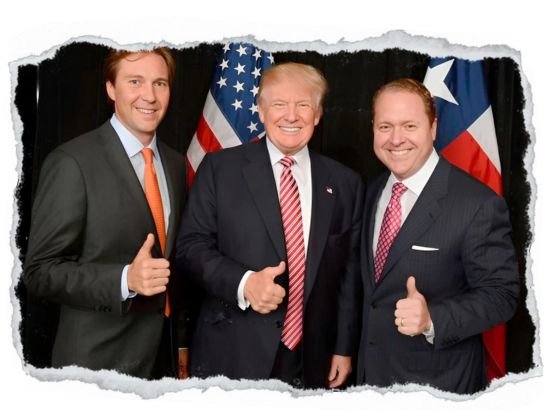
In a series of post-election developments, former U.S. President Donald Trump’s inner circle appears to be building strategic and economic linkages with countries often seen in opposition to India — namely Pakistan, Bangladesh, and Turkey. These developments have sparked serious debate among Indian policymakers about the geopolitical implications if Trump secures a second term in the White House.
At the center of this unfolding story is Gentry Beach, a Texas-based businessman and longtime friend of Donald Trump Jr. Beach, who played a key role in Trump’s 2016 fundraising campaign, visited Pakistan, Bangladesh, and Turkey in late January 2025 — just days after Trump was re-elected as president.
According to a Times of India report, Beach held several high-level meetings during his South Asia tour. In Pakistan, he met with Prime Minister Shehbaz Sharif, Finance Minister Muhammad Aurangzeb, and Foreign Minister Ishaq Dar on January 30. The Pakistani media reported that discussions focused on mineral exploration, energy investments, and real estate development, particularly involving Beach’s company, White Bridge Global.
After his Pakistan visit, Beach traveled to Bangladesh where he met Chief Economic Advisor Mohammad Yunus and pledged large-scale investment in the oil, gas, and defense sectors through another venture, HighGround Holdings. In Turkey, he signed a 50-50 joint venture agreement with Terra Holdings to make Turkey a new global manufacturing hub — “the next China,” in his words.
These moves are being interpreted by Indian analysts as an attempt by the Trump camp to strengthen ties with India’s regional rivals, potentially leading to a new alignment that excludes New Delhi.
India has taken note of the fact that all three countries — Pakistan, Bangladesh, and Turkey — have had complicated or strained relations with New Delhi. The development of economic ties with a Trump-linked figure so soon after the U.S. elections has added to speculation that Trump’s second term could realign American foreign policy in South Asia away from India.
Concerns are also mounting over Trump allies promising multi-billion-dollar investments in Pakistan’s resource-rich regions, especially a $50 trillion valuation linked to placer gold deposits near the Indus River. Notably, the deals were facilitated by Pakistan’s Special Investment Facilitation Council (SIFC), which includes the country’s military top brass — another potential red flag for India.
Adding to India’s concerns is a new cryptocurrency venture titled World Liberty Financial, which, according to Times of India, is being designed to position Pakistan as the crypto capital of South Asia. The involvement of Trump-linked individuals in launching this project, with participation from Pakistani military and government circles, signals deeper U.S.-Pakistan coordination under Trump’s leadership.
Gentry Beach is not new to controversy. In 2018, The Guardian had reported his lobbying efforts in Washington to ease sanctions on Venezuela, allowing American firms to operate there. Critics argue the same playbook is now being used in South Asia — securing private business deals under the guise of diplomatic engagement while potentially destabilizing the regional power balance.
The growing interactions between Trump-linked business allies and governments of Pakistan, Turkey, and Bangladesh are raising alarms in India. While these may be driven by economic motives, the timing, scale, and political affiliations involved suggest a broader geopolitical pivot could be underway — one that may redefine India’s strategic calculations in South Asia and beyond.